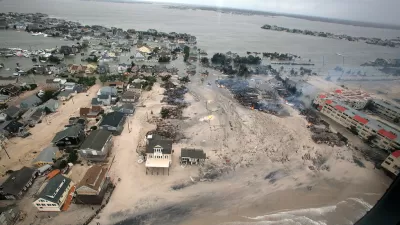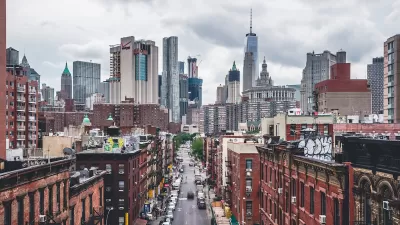Dave Hampton, an architect and a principal at the consulting firm re:ground llc reviews last month’s "MIT Sea Grant’s Climate Change Symposium: Sustaining Coast Cities."

Hampton, a principal at the consulting firm re:ground llc, attended the Cambridge, Mass. conference June 16-18 and writes that the event made it clear to him how concerns about climate change have gone beyond surface discussions. The common terms used at these kind of events have more significance, especially in light of recent natural disasters, according to Hampton.
“…this symposium demonstrated that with Hurricane Sandy just recently behind us, the ‘what if’ scenario-izing is no longer necessary. Not only is the subject timelier than ever, but it appears that oft-used terms such as sustainability, climate change, development, disaster mitigation, adaptation, and resilience might actually be becoming inextricable facets of the same drive: to persist, and to persevere.”
Hampton writes that he was particularly drawn in by a presentation the Honorable Leo Robinson, councilor and lifelong resident of the northeast Boston are community of Chelsea, gave titled “One Community’s Concerns: Sea Level Rise and Chelsea.”
He describes how Robinson shared the environmental and economic perils of living in a community affected by sea-level rise.
“Packing 35,000 residents in 1.8 square miles, ‘…the redevelopment patterns that mature[d] in the cities like Chelsea… have resulted in almost every square foot of property being developed and previous water and wetland resources being filled to create more land for development.’”
FULL STORY: Adapt, We May’ – The Chelsea Way: Regional Resilience and America’s Coastal Cities

Maui's Vacation Rental Debate Turns Ugly
Verbal attacks, misinformation campaigns and fistfights plague a high-stakes debate to convert thousands of vacation rentals into long-term housing.

Planetizen Federal Action Tracker
A weekly monitor of how Trump’s orders and actions are impacting planners and planning in America.

San Francisco Suspends Traffic Calming Amidst Record Deaths
Citing “a challenging fiscal landscape,” the city will cease the program on the heels of 42 traffic deaths, including 24 pedestrians.

Defunct Pittsburgh Power Plant to Become Residential Tower
A decommissioned steam heat plant will be redeveloped into almost 100 affordable housing units.

Trump Prompts Restructuring of Transportation Research Board in “Unprecedented Overreach”
The TRB has eliminated more than half of its committees including those focused on climate, equity, and cities.

Amtrak Rolls Out New Orleans to Alabama “Mardi Gras” Train
The new service will operate morning and evening departures between Mobile and New Orleans.
Urban Design for Planners 1: Software Tools
This six-course series explores essential urban design concepts using open source software and equips planners with the tools they need to participate fully in the urban design process.
Planning for Universal Design
Learn the tools for implementing Universal Design in planning regulations.
Heyer Gruel & Associates PA
JM Goldson LLC
Custer County Colorado
City of Camden Redevelopment Agency
City of Astoria
Transportation Research & Education Center (TREC) at Portland State University
Jefferson Parish Government
Camden Redevelopment Agency
City of Claremont



























